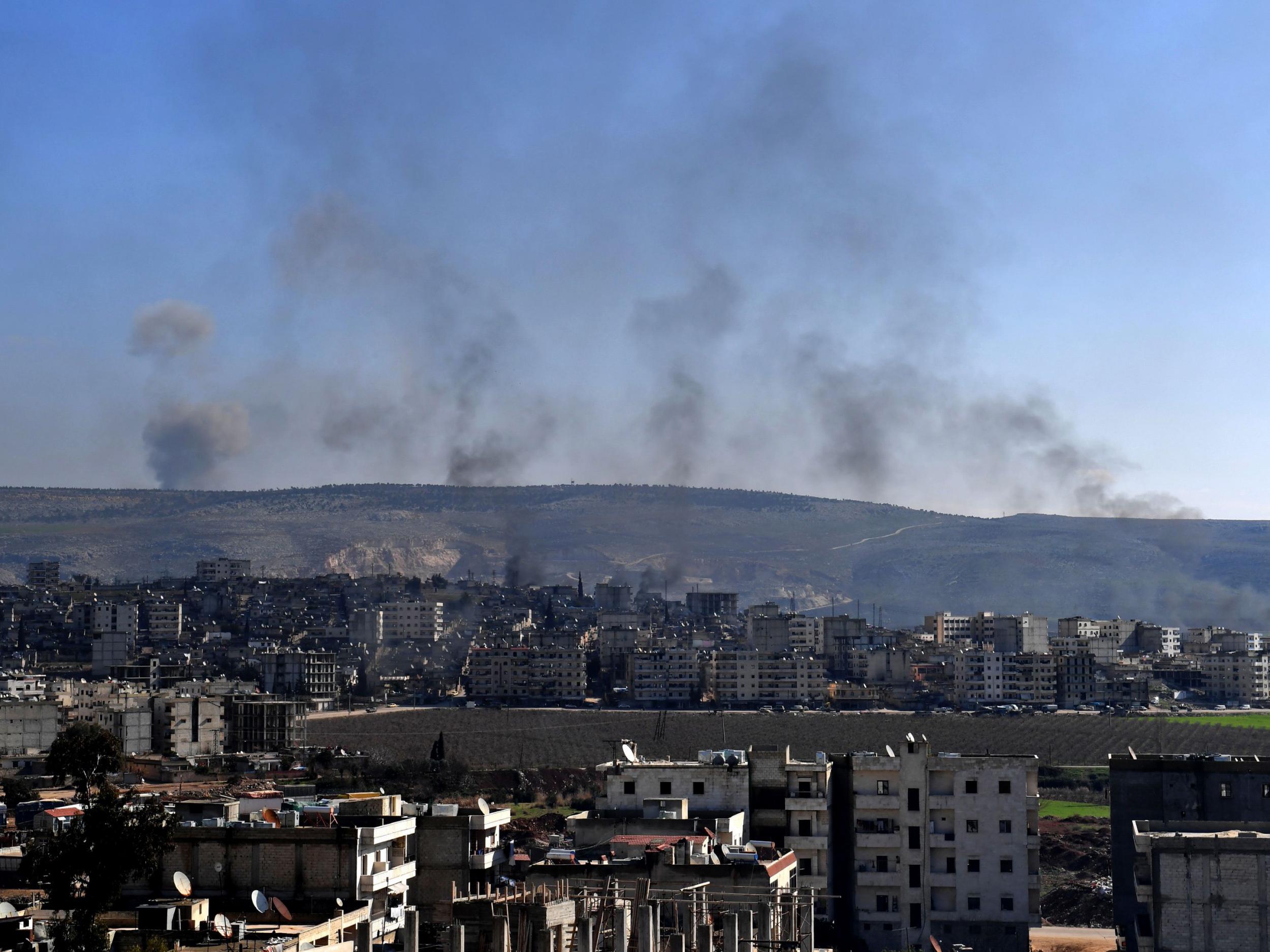Foreign Office accused of having 'little to say' over plight of Iraqi Kurd allies in new report
MPs also criticise Boris Johnson’s department for ‘incoherent’ stance on Kurds in neighbouring Syria – where Turkey has mounted a bombing campaign

The Foreign Office is accused today of failing to speak up for Britain’s Iraqi Kurd allies over corruption and breaches of democracy, following military clashes with Baghdad.
Boris Johnson’s department is also criticised for an “incoherent” stance on the future of the Kurds in neighbouring Syria, where Turkey has mounted a bombing campaign and there is a “high risk” of further conflict.
The criticism comes in a report by the Commons Foreign Affairs Committee, which urges Britain to “play a role in helping to resolve” both conflicts.
In Iraq – where the Iraqi government recaptured disputed Kurd-held territory after an independence referendum – the Foreign and Commonwealth Office (FCO) said there had been “limited clashes and loss of life”.
But today’s report warns ministers had “little to say to the committee about signs of corruption or the curtailment of democracy in the Kurdistan Region of Iraq (KRI)”.
They also “appeared reluctant to criticise Baghdad over the role of Shia militias connected with Iran, or restrictions placed on the KRI that will only likely drive the Kurds towards departure”.
“The FCO should not shy away from speaking out over these issues,” the Foreign Affairs Committee concluded.
Last September, against overwhelming international advice, Kurdistan held a vote on independence – prompting Baghdad to take back by force disputed territories, including Kirkuk and the surrounding oilfields.
During its inquiry, the committee heard evidence that UK ministers possessed detailed intelligence warning of the links between Tehran and the Baghdad-backed Shia militia operating against the Kurds.
There have since been numerous claims of human rights abuses being carried out by these militia to remove Kurds from Kirkuk.
Today’s report concludes, nevertheless, that “a negotiated solution is possible”, urging the Foreign Office to “offer to play an enhanced role in facilitating dialogue”.
Meanwhile, in Syria, Mr Johnson’s department had failed to take a “clear view” on the Kurdish People’s Protection Units (YPG) – which Turkey regards as a terrorist group.
The YPG has formed a major part of the Syrian Democratic Forces (SDF), which the UK has been supporting with air strikes in the fight Isis (also known as Daesh).
Turkey views the group, and its political wing the Democratic Union Party (PYD), as an extension of the Kurdistan Workers’ Party (PKK) – which is classed as a terrorist organisation by both Ankara and the UK.
The MPs warned there was a “high risk that the expansion of the PYD/YPG will result in new conflict in the region” as Turkey has already moved against the group and the Syrian government has threatened to do so.
“The FCO’s view is currently incoherent. The evidence to our inquiry argued that this group was linked to the PKK, even though the nature and extent of these links is debatable,” said Tom Tugendhat, the committee’s Conservative chairman.
“But the FCO seemed uncertain about whether these links existed at all. That is not credible, and the FCO should have a clear view of its own rather than repeatedly referring to ‘reported’ links.”
But a Foreign Office spokesperson said: “The situation in northern Syria is extremely complex.
“UK policy is about working with the international community to secure the lasting defeat of Daesh and to advance a political settlement which will end the Syrian conflict. We will carefully consider the report’s recommendations.”
Subscribe to Independent Premium to bookmark this article
Want to bookmark your favourite articles and stories to read or reference later? Start your Independent Premium subscription today.

Join our commenting forum
Join thought-provoking conversations, follow other Independent readers and see their replies